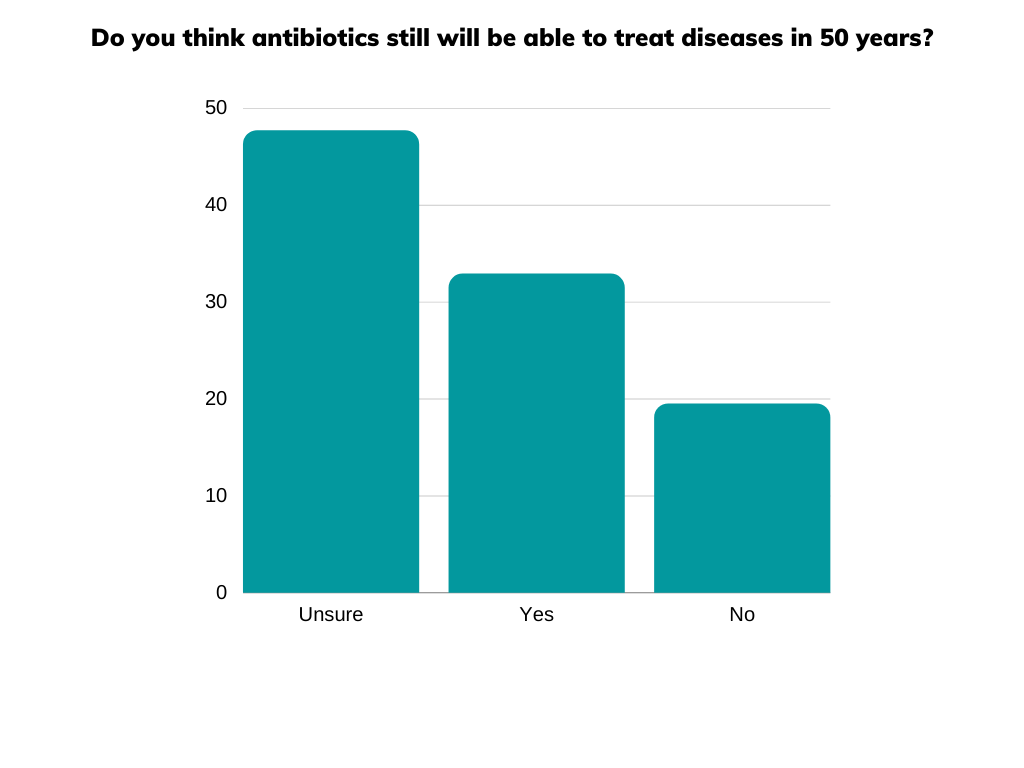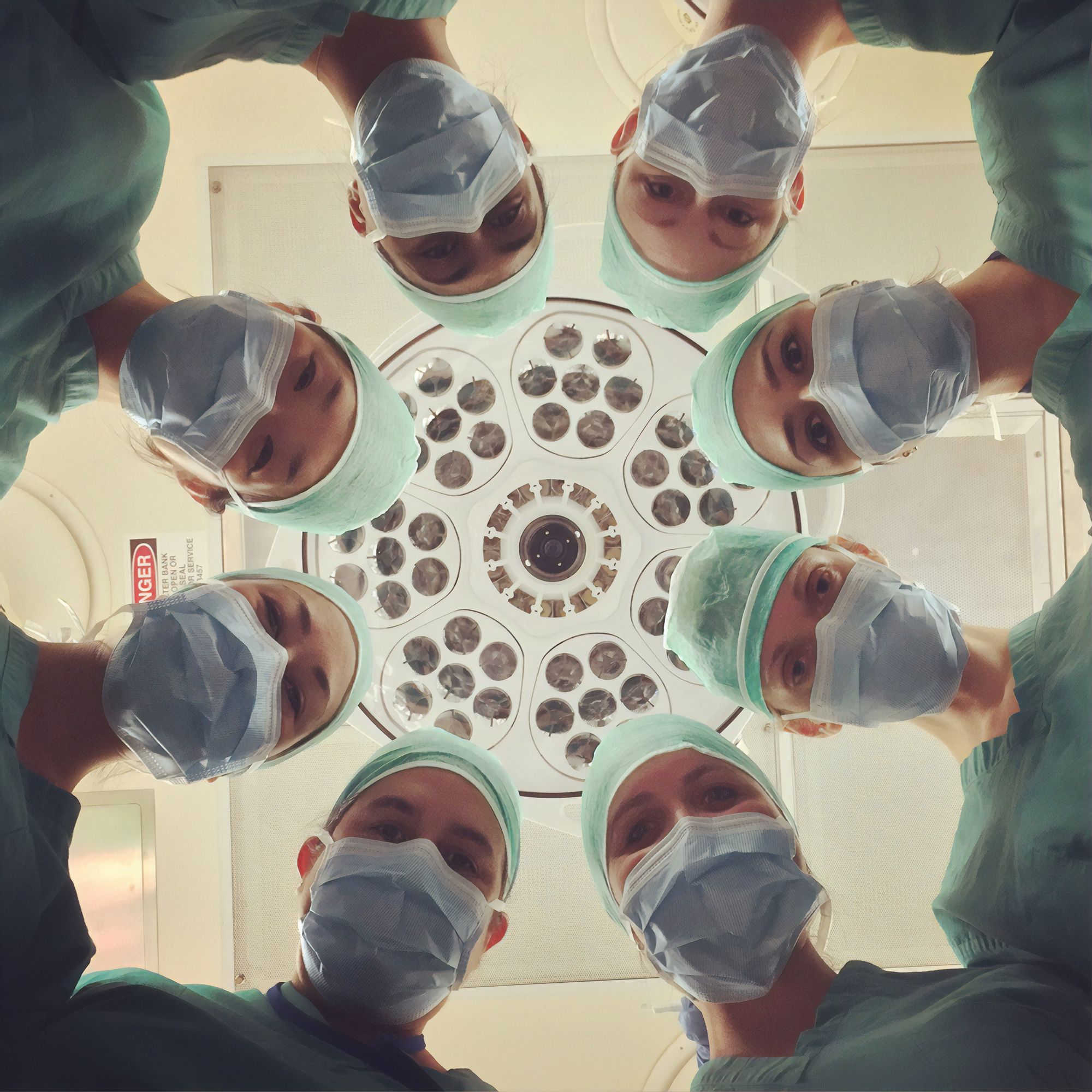
💡 Optimist's Edge: You can still count on antibiotics
After all the warnings about antibiotic resistance, you might think the medicine soon will belong to the past. This is not the case. Maria Eriksson explains the benefits of antibiotics.
Share this story!
📉 What people think
We have all heard of antibiotic-resistant bacteria. This is a significant and severe problem. Many people, therefore, believe that antibiotics as a cure for various infections will soon be a thing of the past. In Warp's survey, one in three respondents said we will still use antibiotics in 50 years. But the rest, two-thirds, are unsure or answer no.

📈 Here are the facts
We have all heard of antibiotic-resistant bacteria. This is quite a big and serious problem. Therefore, many conclude that if we are to be able to continue to use antibiotics, this requires different forms of effort.
On the one hand, new drugs need to be developed. On the other hand, we need to reduce the overuse of antibiotics that contribute to resistant bacteria. Positive previous things are happening in both of these areas:
- New antibiotics are under development. According to a compilation from last year, there were 43 different antibiotics in the pipeline, of which 13 were in phase 3, the last step of clinical testing. Some of them have the potential to become drugs against bacteria that are today resistant to all or almost all antibiotics that are available today. Historically, 60 percent of the drugs that reached phase 3 have been approved.
- There is more to discover. Many natural environments where antibiotics can be detected are still unexplored. It can also be easier to find and utilize these substances, thanks to genetic engineering.
- New technology makes all the difference. AI can be used to find tomorrow's antibiotics. Halicin is the first substance with an antibiotic effect to be developed entirely with the help of AI, which analyzed 100 million different molecules. It took only three days to produce 27 potential candidates from these millions of molecules.
- A more selective use. Better tests can help ensure that antibiotics are used only when needed.
- Restrictions for use in animals. Since 28 January 2022, it has been forbidden in the EU to give animals antibiotics for preventive purposes or in feed. Animal husbandry is estimated to account for 70-80 percent of the total antibiotic use globally; an,d several EU countries are among those that use the most antibiotics.

💡 Optimist's Edge
Antibiotic resistance is a big problem that many are working to solve. Humans are often good at solving such issues, even if it can take unnecessarily long time. To continue with cancer care and operations as today and prevent people from dying from infections such as pneumonia or blood poisoning, antibiotics play a crucial role.
💡 Do not rule out antibiotics. We will continue to combat misuse and develop new types of antibiotics.
Anyone who finds the next generation of antibiotics is sitting on a gold mine. And remember, although antibiotic resistance is a significant problem, especially in low- and middle-income countries, significantly more people die from treatable diseases because they lack access to antibiotics. This is also why it is essential to counteract antibiotic resistance and develop new drugs.

👇 How to get the edge
❓ So, how do you get the most out of this knowledge?
- Develop new potential antibiotics. Smaller companies have developed over 95 percent of the new antibiotics in clinical trials have been developed by smaller companies. Many of them do not yet have any products on the market. In other words: you do not have to be a drug giant to develop new antibiotics.
- Contribute to the research. Ensuring that we can still use antibiotics in the future is a complex issue. It is about developing new drugs and making sure that they get out on the market and make sure that they are used correctly. Here are, for example, some projects that are underway at Uppsala Antibiotics Center.
- Find funding. Apply for scholarships for students and researchers at different levels.
- Donate! Donate money to antibiotic research.
You now have an advantage because you have gained this knowledge before most others –